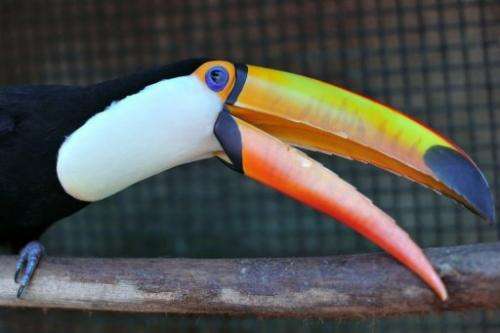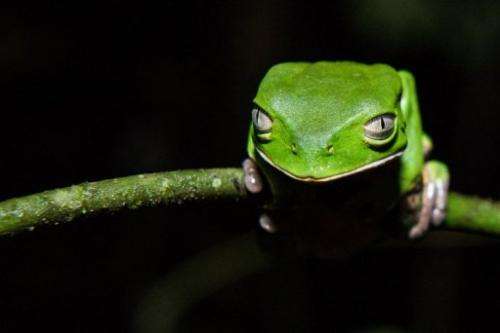Most Earth species 'still unknown', Brazil expert says

The vast majority of the Earth's estimated 13 million species are still unknown and to describe them all would take up to 2,000 years, according to a leading Brazilian scientist.
"We estimate that there are a total of around 13 million species (known and unknown) in the world," says Thomas Lewinsohn, a renowned professor of ecology at the State University of Campinas (UNICAMP) in Sao Paulo state.
"Out of these, roughly 1.75 million species, including micro-organisms, plants, insects, bacteria and animals, have been described," he told AFP in an interview.
And there is actually no consensus on the exact number of species, with experts relying on extrapolation based on known data.
Lewinsohn presented his findings at a forum organized here last week by FAPESP, a local research foundation focusing on Sao Paulo state's biodiversity.

He said a major problem was a lack of data in countries with the greatest biodiversity such as Brazil, Colombia, Mexico, Indonesia or South Africa.
"Most species have been discovered by amateur taxonomists (scientists who classify organisms according to their physical or cellular characteristics) in Europe," he noted. "That is not the case in Brazil and countries with high biodiversity where we do not have an army of amateur taxonomists."
He stressed the importance of understanding the biodiversity of smaller species such as microbes to map out conservation strategies that can preserve the ecosystem.
"You cannot base conservation decisions solely on well-studied groups," he noted. "If we are concerned about maintaining functioning ecosystems, we must study further the biodiversity of smaller organisms such as insects and microbes."
Countries such as Brazil need international assistance to build and regularly monitor reference data to "come up with reliable estimates of changes in biodiversity".
"It requires a different mindset, a rethink of how money is allocated," Lewinsohn noted.
Describing all species, he said, might take up to 2,000 years and the cost could range between $25 and 50 billion over 50 years.
Lewinsohn said this compared with the $1.738 trillion the world spent on arms just in 2011 or the $195 billion spent on NASA's space shuttle program from 1971 to 2011.
(c) 2013 AFP
















